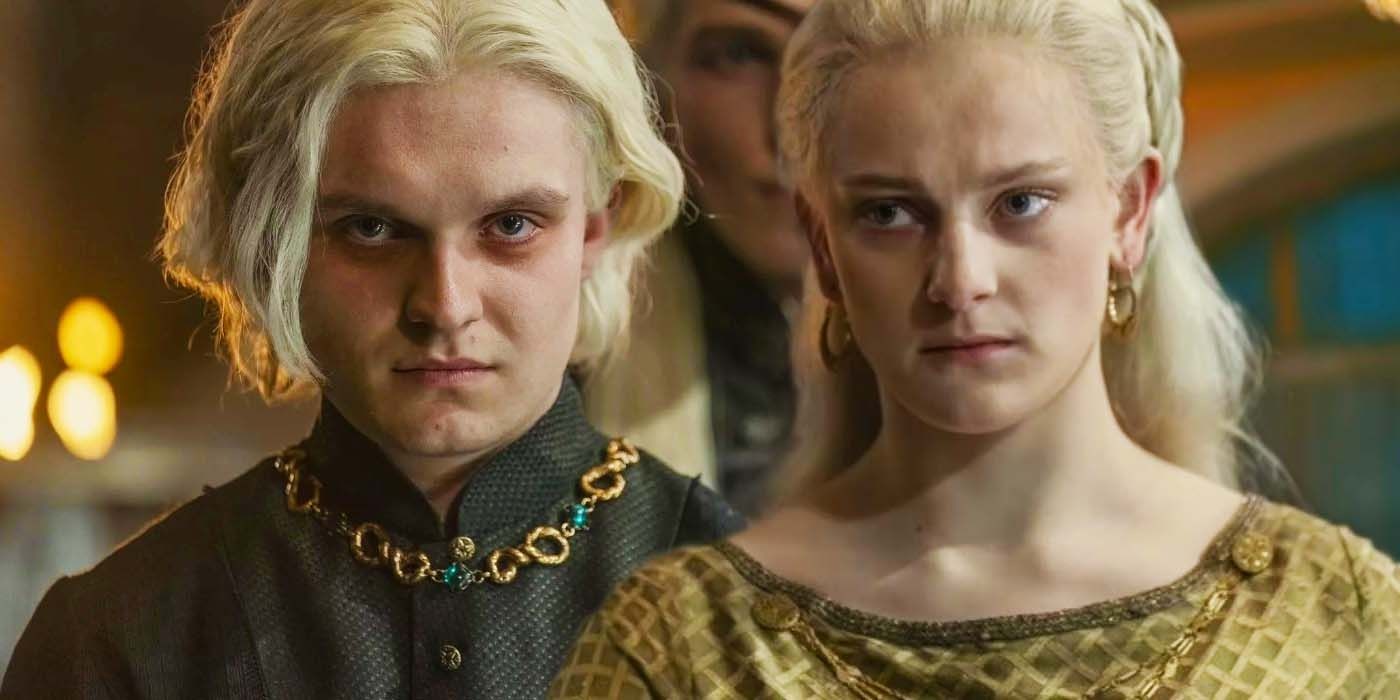One of the most heartbreaking and unforgettable deaths in Game of Thrones is that of young King Tommen Baratheon. Even years after the series concluded, many fans still grapple with the question: Why Did Tommen Kill Himself? Ascending the Iron Throne as a boy, Tommen was ill-equipped to navigate the treacherous currents of Westerosi politics and the brutal legacy of his own family. His reign, though brief, was marked by innocence and compassion, starkly contrasting with the cruelty of his predecessor, Joffrey. Yet, this very innocence, coupled with the manipulative forces around him, ultimately led to his tragic demise. Tommen Baratheon’s suicide remains a poignant example of the devastating consequences of power, manipulation, and the loss of hope in the grim world of Game of Thrones.
The Devastating Sequence of Events Leading to Tommen’s Suicide
Tommen’s presence became more prominent in Game of Thrones starting from Season 4, thrust into the spotlight following the shocking death of his older brother, Joffrey. Like his siblings, the truth of Tommen’s parentage – born of incest between Cersei and Jaime Lannister – was a dark secret hanging over him. He was present at Joffrey’s wedding to Margaery Tyrell and subsequently at his funeral. Despite his youth and naivete, Tommen was unexpectedly crowned the King of the Seven Kingdoms, a position he was far from prepared for.
| Tommen Actors |
|---|
| Callum Wharry |
| Dean-Charles Chapman |
Following Joffrey’s demise, Margaery Tyrell, ever the political player, quickly shifted her attention to Tommen. Their marriage was a strategic move, realigning powerful families, but it also offered Tommen a semblance of affection and guidance. However, Cersei, consumed by jealousy of Margaery’s influence over her son, made a fatal miscalculation. In her attempt to undermine the Tyrells, Cersei empowered the High Sparrow and his Faith Militant. This act backfired spectacularly, leading to Margaery and Loras Tyrell’s arrest, and eventually, Cersei’s own downfall and humiliating walk of atonement.
Tommen, increasingly isolated and susceptible to influence, fell under the sway of the High Sparrow and his religious dogma. Despite Tommen’s abolishment of trial by combat, Cersei was still set to face judgment. In a desperate and catastrophic act, Cersei orchestrated the wildfire explosion beneath the Great Sept of Baelor. This horrific event wiped out scores of her enemies, including Margaery, along with countless innocent bystanders. Witnessing the green inferno consume the Sept from his window, and learning of Margaery’s death, Tommen’s fragile world shattered. In a silent act of despair, he removed his crown and walked out of his window to his death. While Margaery’s death was the immediate trigger, the true roots of Tommen’s suicide lay much deeper, intertwined with the toxic influence of his family, particularly his mother.
The Lannister Web of Manipulation and Control
In retrospect, Tommen Baratheon’s death felt almost inevitable. From the moment he ascended the throne, he was surrounded by individuals seeking to manipulate and control him for their own agendas. Margaery, though seemingly kind, seduced him in his vulnerable state to secure her family’s power. Cersei, blinded by her own desires for control, smothered him with her manipulative “protection.” Even the High Sparrow, cloaked in religious piety, recognized Tommen’s gullibility and exploited him to further the Faith of the Seven’s agenda. While the grief over Margaery’s death was undoubtedly a significant factor, it was the cumulative trauma of growing up within the Lannister family that truly pushed Tommen to the edge.
The fact that his mother knowingly killed thousands of innocent people in King’s Landing, including the woman he loved, was unfathomable for Tommen.
Tommen had already endured the loss of his siblings, Myrcella and Joffrey, and the death of his supposed father, Robert Baratheon. The realization that his mother, the very person who should have protected him, was responsible for such unimaginable carnage, was devastating. Coupled with the shattering of his faith in the High Sparrow and the feeling of utter isolation, the young king felt trapped, believing he had no other escape but to end his own life. This abrupt and tragic exit became one of the most shocking moments in Game of Thrones.
Cersei’s Prophecy: A Self-Fulfilling Tragedy
Tommen Baratheon’s suicide chillingly fulfilled a prophecy that had haunted Cersei throughout her life. In a flashback in Game of Thrones season 5, Cersei, as a young girl, sought out the witch Maggy the Frog to foretell her future. Maggy’s ominous pronouncements, particularly regarding Cersei’s children, became a terrifying framework for her actions and fears.
“You will be queen, for a time. Until there comes another, younger and more beautiful, to cast you down and take all that you hold dear … The king will have twenty [children], you will have three. Gold will be their crowns, and gold their shrouds.”
For Cersei, her children were the sole focus of her love and ambition. Maggy’s prophecy foretold their deaths, stating “gold will be their shrouds.” Joffrey was poisoned, Myrcella suffered the same fate as revenge against the Lannisters, and Tommen took his own life. The deaths of all three of her children with Jaime tragically completed the prophecy. Their golden shrouds, metaphorically speaking, were indeed their royal crowns turned to funeral shrouds.
While the books also include a prophecy about Jaime potentially killing Cersei, this was omitted from the show. In the series, Tommen’s suicide became the pivotal moment that solidified the prophecy’s grim accuracy, unfolding in the most heartbreaking way imaginable, true to the bleak tone of Game of Thrones.
The Unforgettable Cinematography of Tommen’s Final Scene
Game of Thrones season 6, episode 10, “The Winds of Winter,” directed by Miguel Sapochnik, renowned for helming some of the series’ most acclaimed episodes, presented Tommen’s death with masterful subtlety. The scene unfolds in Tommen’s chambers, where he observes the horrifying aftermath of Cersei’s wildfire explosion from afar. He is informed of Margaery’s death, and as an attendant murmurs, “I’m very sorry, your grace,” the camera focuses on Tommen facing the window, his back to the audience.
It’s a gracefully executed scene, one that Game of Thrones fans won’t soon forget.
The camera remains static as the attendant departs, and Tommen briefly steps out of frame to remove his crown. He returns to the window, the camera unwavering in its focus. Without a word, the young king simply steps forward, calmly walking out of the window to his death. The scene is a study in understated tragedy, contrasting sharply with the preceding explosive destruction of the Sept. The quietude of Tommen’s suicide, following the bombastic chaos, amplified its shock value and lasting impact on Game of Thrones viewers.
Dean-Charles Chapman’s Insight into Tommen’s Demise
Game of Thrones actor Dean-Charles Chapman, who portrayed Tommen, has offered his perspective on his character’s final scene. Reflecting on Tommen’s death (in an interview with Cosmopolitan), Chapman recounted the numerous takes required for the fall, humorously admitting, “I took a lot of face-plants.” Despite the physical demands, the chosen take perfectly captured the emotionless resignation of Tommen’s final act.
Chapman also expressed surprise at Cersei’s reaction to Tommen’s death. While she had displayed intense grief over Joffrey and Myrcella, Cersei appeared almost indifferent to Tommen’s suicide, immediately shifting her focus to seizing the throne. Chapman jokingly admitted to feeling “offended” by Cersei’s apparent lack of concern.
However, Cersei’s seemingly cold reaction can be interpreted differently. It suggests that Tommen’s death struck her even harder than the previous losses, leaving her emotionally numb and unable to process further grief. It could also indicate a deeper self-denial, as acknowledging her devastation would force her to confront her own role in Tommen’s suicide.
Adding a touch of levity, Chapman’s primary concern for Tommen’s legacy was for Ser Pounce, Tommen’s beloved cat. Although Ser Pounce disappeared from the series after Tommen’s death, Chapman humorously hoped the feline found happiness and companionship within the Red Keep, a bittersweet thought in the grim reality of Westeros.
The Short Reigns and Brutal Fate of Westerosi Kings
Tommen Baratheon’s brief reign, while seemingly unusual, reflects a recurring theme in Game of Thrones: the perilous nature of kingship in Westeros. Joffrey Baratheon’s reign was equally short-lived, taking the throne at the end of season 1 and meeting his demise early in season 4.
The War of the Five Kings, ignited by Robert Baratheon’s death, saw all five contenders for the crown perish by season 6. Even Daenerys Targaryen, a figure many envisioned on the Iron Throne, held it for less than a day before her assassination. In contrast, Bran Stark’s ascension to the throne at the Game of Thrones ending suggests a potentially more peaceful era and a longer reign.
House of the Dragon highlights King Viserys I Targaryen, who enjoyed a prosperous 26-year reign before his death plunged the realm into conflict. The longest reign in Westerosi history belongs to Jaehaerys I Targaryen, who ruled for an impressive 55 years, dwarfing the brief tenures of Tommen and many other Game of Thrones monarchs.
Echoes of Tragedy: Tommen and Helaena Targaryen
 Helaena & Aegon II standing side by side in House of the Dragon.
Helaena & Aegon II standing side by side in House of the Dragon.
Tommen Baratheon’s tragic end bears striking similarities to the fate of Helaena Targaryen in House of the Dragon. The first season of House of the Dragon concluded with the devastating death of Jaehaerys Targaryen, Helaena’s son. This occurred after Helaena was forced to choose which of her children would be killed by Blood and Cheese. This scene mirrored a particularly brutal moment from George R.R. Martin’s Fire & Blood novel.
Like Tommen, Helaena was thrust into impossible situations, manipulated, and treated as a pawn. Overwhelmed and despairing after Jaehaerys’ murder, Helaena, much like Tommen after Margaery’s death, succumbed to profound depression. In the books, Helaena ultimately jumps from her window in Maegor’s Holdfast, mirroring Tommen’s suicide in Game of Thrones with chilling accuracy. Both characters, driven to despair by the cruelty and machinations surrounding them, found their only escape in taking their own lives.
Tommen Baratheon: A Symbol of Innocence Lost
Game of Thrones is notorious for denying its characters happy endings, but Tommen’s death stands out as particularly tragic. In a narrative dominated by power-hungry individuals vying for the Iron Throne, Tommen was burdened with the crown despite never desiring it. He was a gentle soul, seemingly content with his brother’s destined rule, spared from the weight of kingship.
Joffrey’s death shattered this reality, and the crown became an unbearable burden for Tommen. Dean-Charles Chapman’s early scenes as Tommen, particularly the scene where Tywin quizzes him on his kingly plans amidst Joffrey’s corpse, perfectly encapsulate Tommen’s predicament. He was surrounded by those who prioritized power over his well-being.
Cersei Lannister, despite her claims of maternal devotion, ultimately failed Tommen. She viewed him not as a son to nurture but as a puppet to control. Her obsession with dominance blinded her to the immense emotional damage she inflicted upon him. Even in her “victory” in “The Winds of Winter,” while she spared Tommen from the Sept’s destruction, she utterly disregarded the devastating psychological impact of her actions.
Tommen was never a central figure in Game of Thrones, and perhaps that was the point. He was overlooked, underestimated, and ultimately failed by those around him. This very obscurity amplifies the tragedy of his death, highlighting his utter isolation and the profound loss of innocence in a world consumed by ambition and violence.
Success!
